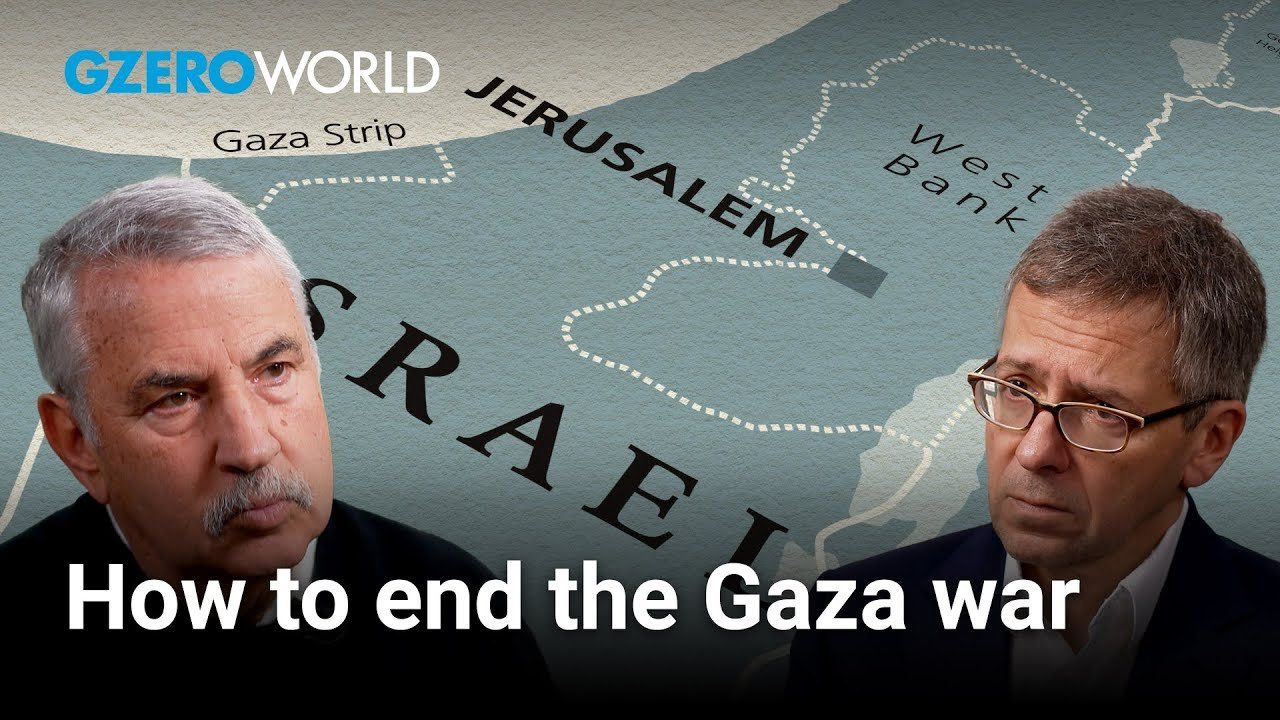
How close is the Gaza war to ending? “Nowhere” says Pulitzer-prize winning author and New York Times columnist Thomas L. Friedman. In a wide-ranging interview with Ian Bremmer on GZERO World, Friedman games out a possible resolution to the war (as far-fetched as it may seem right now) and explains why both Israeli Prime Minister Netanyahu and Hamas are obstacles to peace. Key to understanding this, Friedman says, is grasping the “codependency” that Netanyahu and Hamas share.
"Netanyahu always understood that... having a strong Hamas in Gaza is the best way to ensure a weak Palestinian Authority in the West Bank.” And even if he wanted to find a peaceful resolution to the conflict, Friedman explains, Netanyahu is paralyzed to do so because of his own precarious political position. “He is hostage to a Far Right in his coalition that has told him... progress toward a unified Palestinian position is a no-go, we'll throw you out of power."
Friedman and Ian also talk about how the US-Israel relationship is as tense as it has ever been. As Ian explains early in the episode, “The Biden administration is losing patience with its closest ally in the Middle East." And yet, the flow of weaponry and money to Jerusalem from Washington remains unabated. It's clear that the path to peace remains elusive. The voices of moderation and diplomacy are more critical than ever, Friedman says. But in the meantime, all signs point to more bloodshed and a new generation of Israelis and Palestinians who will grow up hating each other.